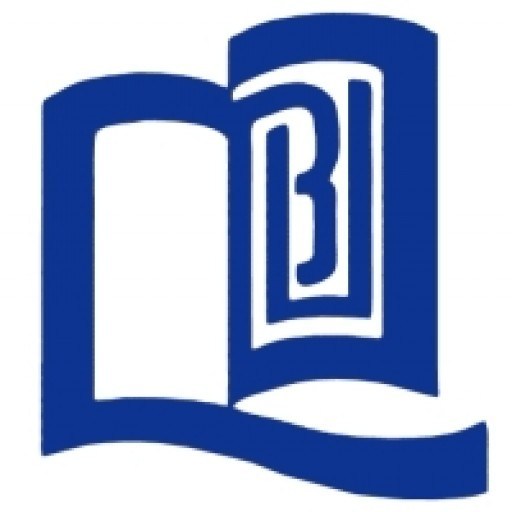Master's Program in Education and Human Resource Development at Nagoya University offers a comprehensive curriculum designed to cultivate professionals capable of addressing the complex challenges of education and workforce development in a rapidly changing global society. This program emphasizes an interdisciplinary approach, integrating theories and practices from education, psychology, sociology, and management to provide students with a well-rounded understanding of human resource development, educational policies, and organizational leadership. Students will engage in both theoretical studies and practical applications through a variety of coursework, research projects, and fieldwork opportunities.
The program aims to develop critical thinking, analytical skills, and innovative problem-solving abilities, enabling graduates to design effective educational programs, improve human resource strategies, and contribute to policy-making processes. With a strong emphasis on research, students will have access to cutting-edge facilities and participate in collaborations with industry, government, and academic institutions. The curriculum includes modules on curriculum development, educational assessment, leadership in education, organizational behavior, talent management, and international education systems.
Moreover, the program prepares students for careers in educational leadership, policy analysis, human resource management, and international development. Faculty members are renowned experts in their respective fields, providing mentorship and fostering an environment of academic excellence. Graduates will be equipped with the skills necessary to initiate innovative projects, analyze educational and labor market data, and influence policy decisions that promote sustainable development in education and human resource sectors. This master's program at Nagoya University is ideal for individuals seeking to make a meaningful impact in education and workforce development on a national and global scale.
GSID Common Subjects
Development Literacy
- Introduction to International Development
- Japan's Development Experience
Methodology
- Introduction to Questionaire
- Survey and Interview
- Introduction to Linguistics
- Information Processing
Lectures by Development Experts
- Development Cooperation
- Development Assistance
- Non-Governmetal Organizations
- Organization for International Cooperation
- International Understanding and Community
Fieldwork
- Preparatory Seminar for GSID
- Overseas Fieldwork
- GSID Overseas Fieldwork
- Preparatory Seminar for GSID
- Domestic Fieldwork
- GSID Domestic Fieldwork
- Independet Overseas Fieldwork I
- Independet Overseas Fieldwork II
- Independet Domestic Fieldwork Ⅰ
- Independet Domestic Fieldwork II
Others
- GSID Common Seminar I
- GSID Common Seminar II
- GSID Common Special Lectures I
- GSID Common Special Lectures II
Core Subjects (required)
Discipline
- Educational Development and Cooperation
- Comparative and International Education
Required Electives
- Educational Development Planning and Evaluation
- Educational Development Policies
- Education, Skill Development and Work
Seminars
- Seminar on Education and Human
- Resource Development Ia,Ⅰb,Ⅱa,Ⅱb
Core Subjects (electives)
- Social Development Theory and Practice
- Education and Health
- Lecture on Education and Human
- Resource Development I
- Lecture on Education and Human
- Resource Development II
- Specical Lecture on Education and Human Resource Development I
- Specical Lecture on Education and Human Resource Development II
Electives from Other Programs
- Development Economics
- Development Management under Globalization
- Development Finance
- Development Planning and Policy
- Regional Development Planning
- Rural Development
- Development Sociology
- Poverty Reduction Strategies
- Introduction to Development Politics I, Ⅱ
- Law and Development
- International Environmental Cooperation
- Internatoinal Labor Migration
- Globalization and Social Change
- Peacebuilding
Electives offered by Cooperative Units
- Lecture on Development Policy I
- Lecture on Development Policy II
- Seminar on Development Policy I
- Seminar on Development Policy II
- Lecture on Management Development I
- Lecture on Management Development II
- Seminar on Management Development I
- Seminar on Management Development II
- TOEFL: minimum score of 80 iBT; 550 PBT
- IELTS: minimum band score of 6
- Application fee: JPY 5,000
- Payment of the registration fee (JPY 282,000)
- Application Form
- Bachelor's Degree Diploma (or Prospective Bachelor's Degree Diploma) from Your University (Original Copy)
- Academic Transcript from the graduate school
- Certificate of Master's degree
- Research Proposal
- Statement concerning applicant's working and/or research experience.
- Photograph card, Examinee's registration card and receipt forms
- Letter of Recommendation
- Letter of Self-Recommendation
- Summary of Undergraduate Graduation Research
- Major Publications
- Documents Showing Other Strengths
- Document Validating Your Nationality and Residence Status
- Japanese Government (Ministry of Education, Culture, Sports, Science and Technology) Scholarship Application Form
Scholarships
- Japanese Government (Ministry of Education, Culture, Sports, Science and Technology) Scholarship
The Master's Programme in Education and Human Resource Development at Nagoya University offers a comprehensive and interdisciplinary approach to understanding the complexities of educational systems and human resource management. The program is designed to equip students with both theoretical knowledge and practical skills necessary for addressing the challenges faced by educational institutions and organizations involved in human development across diverse cultural and social contexts. Students engage in advanced studies that encompass educational theories, curriculum development, policy analysis, and organizational management, with a focus on fostering innovation and promoting lifelong learning. The curriculum integrates coursework, research projects, and fieldwork, enabling students to apply their learning in real-world situations and develop strategies tailored to specific needs of educational settings and workplaces. The program emphasizes global perspectives on education and human resource development, encouraging students to critically analyze international trends and contribute to policy formulation and organizational change. Faculty members are renowned scholars with expertise in education systems, adult education, vocational training, and organizational psychology, providing mentorship and guidance throughout the program. Graduates of this program are well-prepared for careers in educational administration, policy development, international organizations, research institutions, and corporate training departments. The program's international environment fosters multicultural understanding and collaboration among students from various backgrounds, enhancing their cross-cultural communication skills and global awareness. Through seminars, workshops, and conferences, students also have opportunities for professional networking and exposure to innovative research in the field. The university’s facilities include research centers, libraries, and collaborative space that support academic excellence and innovation. Overall, the program aims to develop highly skilled practitioners and policy-makers who can contribute positively to educational development and human resource advancement on a global scale.








